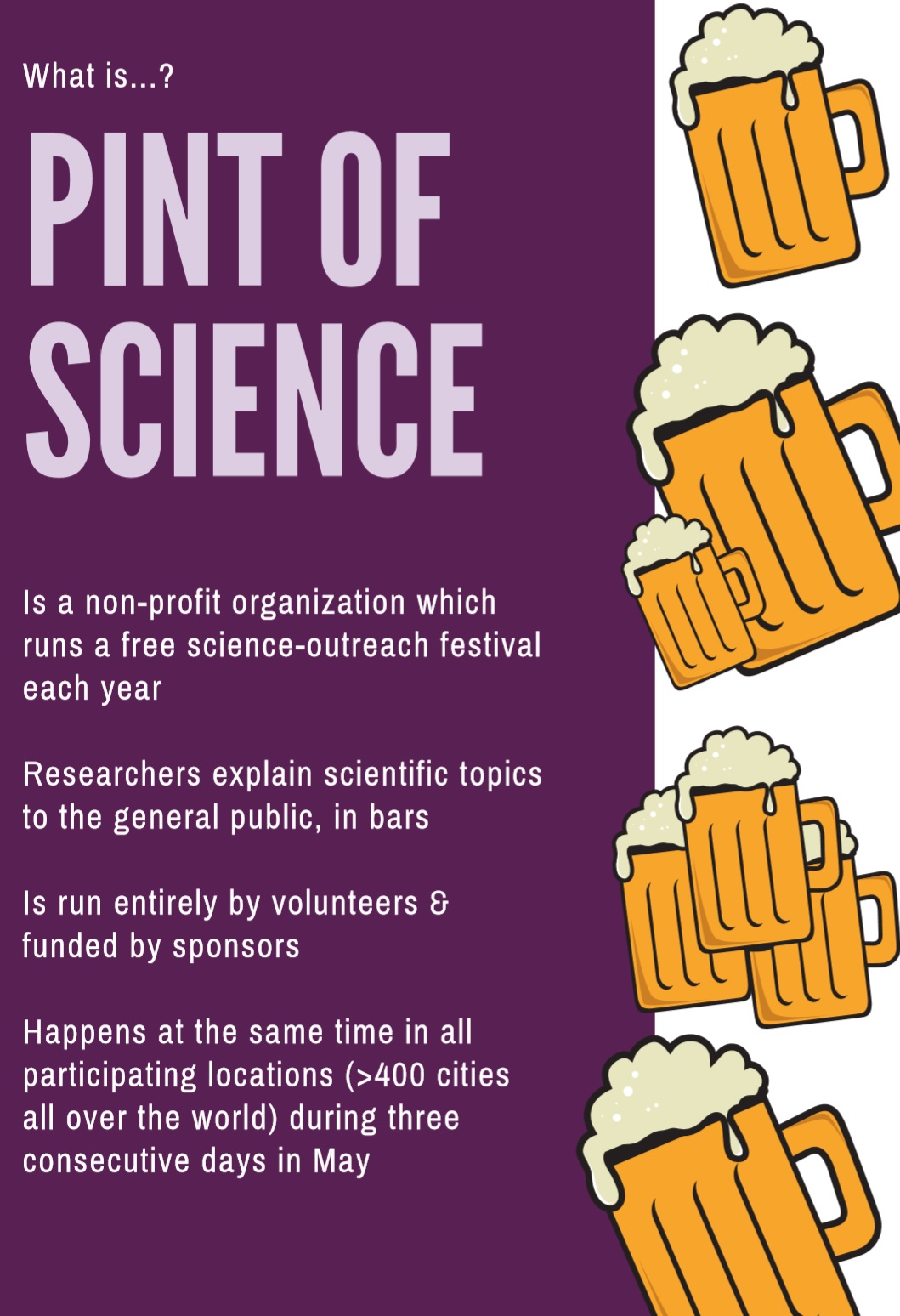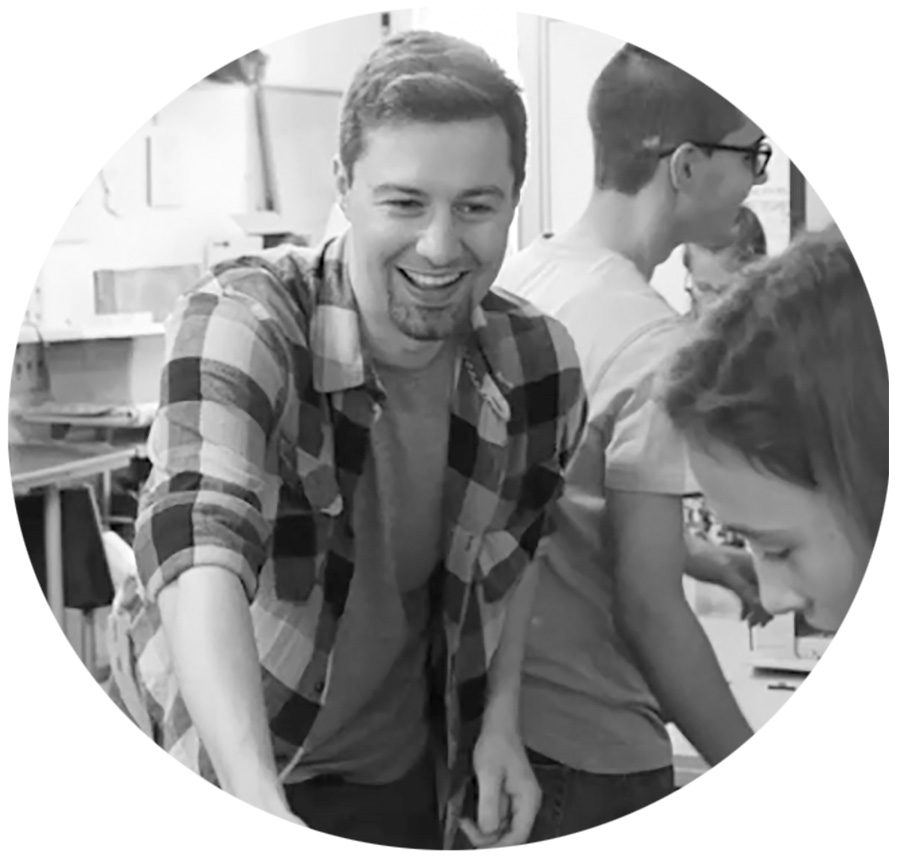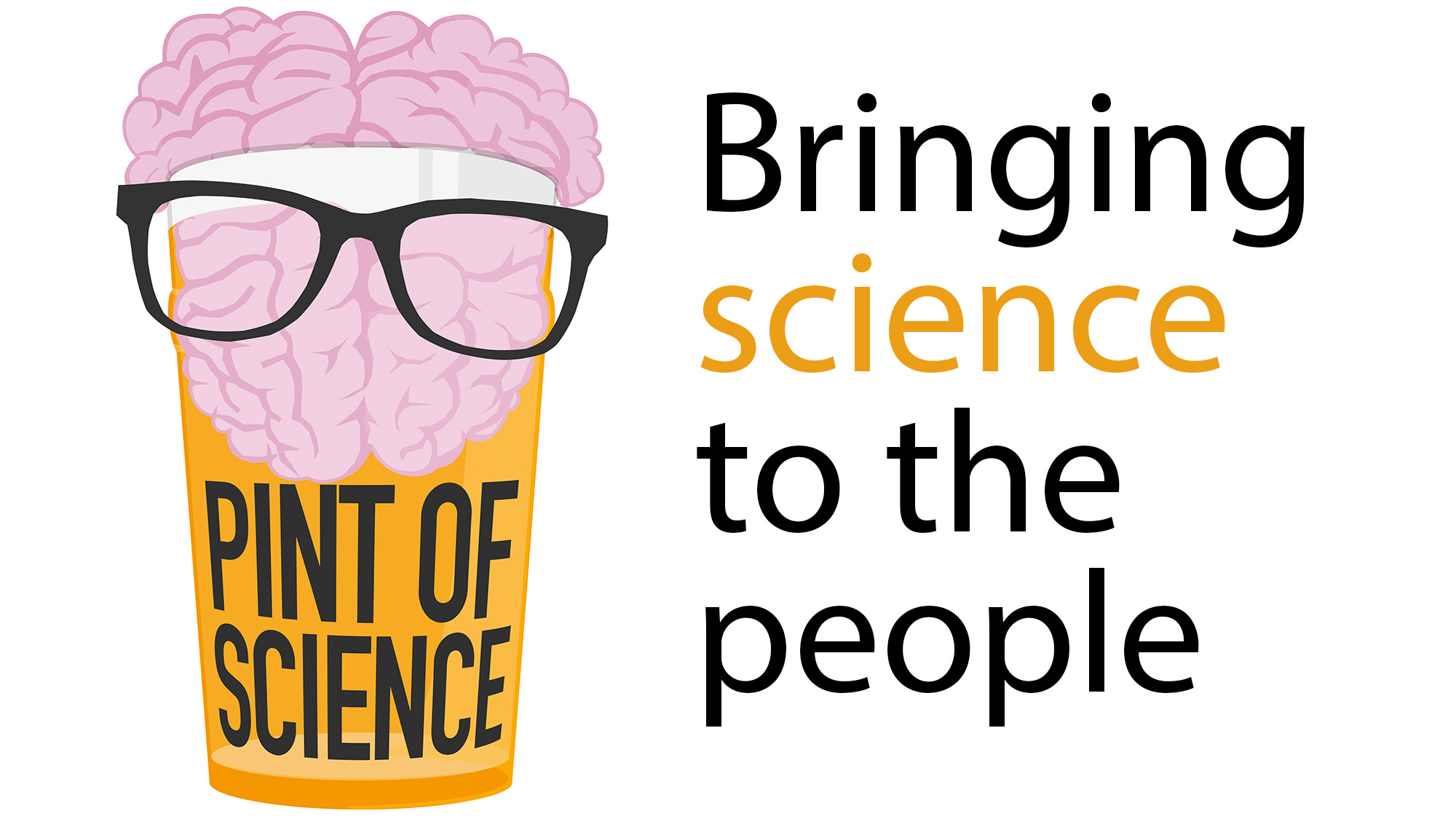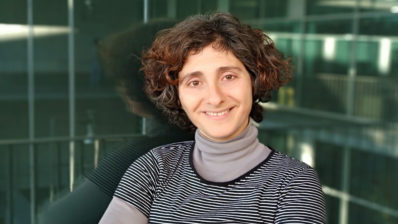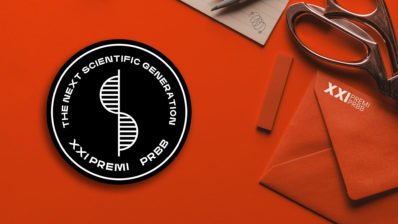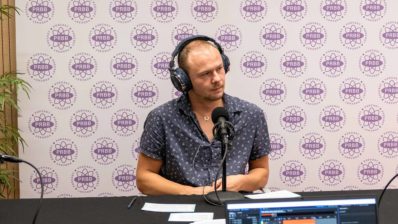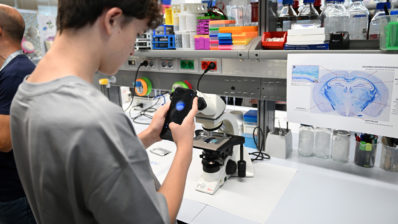Two neuroscientists, Michael Motskin and Praveen Paul, wanted to find a way to take their research out of the lab and bring it directly to the people. One of their main challenges was finding a space where the public would feel comfortable talking about science – not a formal setting like an auditorium, laboratory, or classroom where the audience might be sheepish about asking questions. They found that the humble English pub was the perfect venue. In 2012 at Imperial College London, Michael and Praveen dreamt up the ‘Pint of Science’ (PoS) festival, where scientists would go into pubs to talk about their research. While only 3 cities took part in the first iteration of Pint of Science in 2013, over the last 6 years the festival has grown by leaps and bounds. In 2019, the PoS festival spanned 6 continents, 24 countries, and nearly 400 cities!
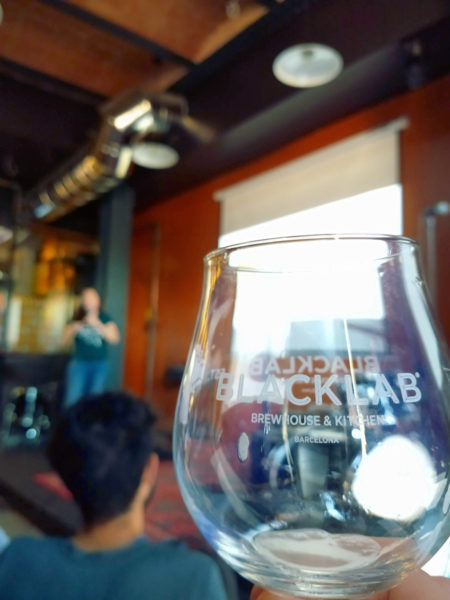
The Pint of Science festival takes place yearly, over three consecutive days in May, in nearly 400 cities.
Each year the PoS festival takes place over three consecutive days in May. As the events happen simultaneously in venues across the globe, there is a continuous stream of social media posts from the hundreds of organizers, thousands of speakers, and the hundreds of thousands of attendees throughout the duration (~100 hours) of the festival. Each country has a small crew of organizers who run the national non-profit organization, and each city also has a crew of organizers who coordinate the logistics of the festival with the local government, the local speakers, and the venues.
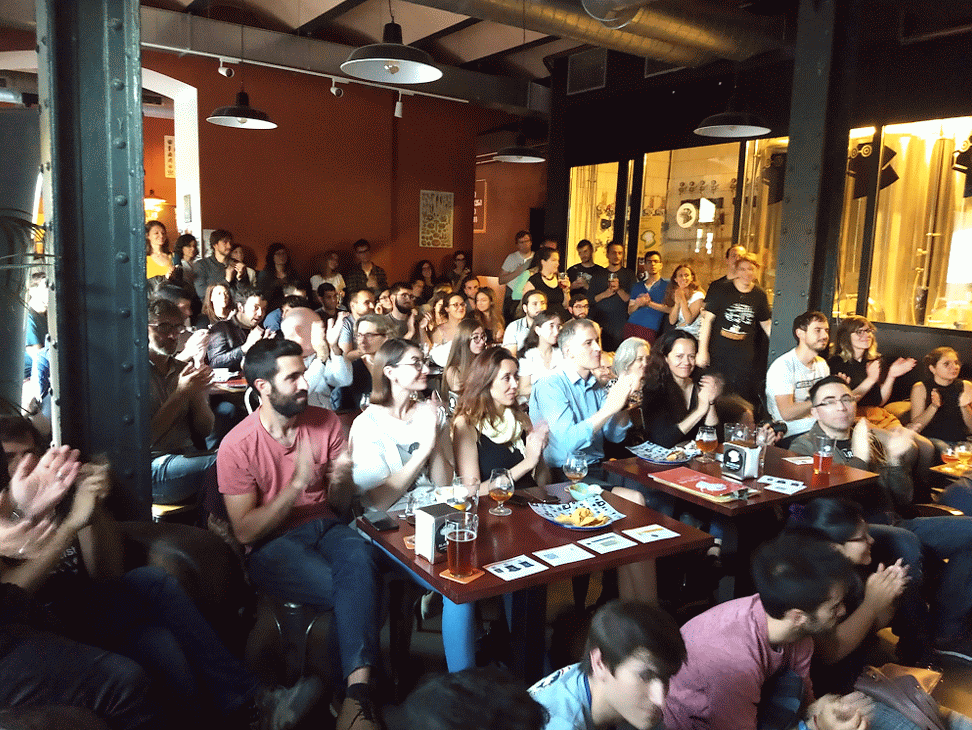
PoS makes an effort to balance the number of speakers by gender and tries to represent diverse fields of research, but each talk must fit in to one of the six PoS categories:
- Our Body (health, biomedicine, human biology)
- Planet Earth (zoology, Earth sciences, geology, evolution)
- Atoms to Galaxies (astronomy, chemistry, physics)
- Our Society (law, sociology, history, politics, humanities)
- Tech Me Out (technology, applied research, devices)
- Beautiful Mind (neuroscience, psychology, psychiatry)
This was the first year that the PoS organizers in Spain put out an open call for proposed talks and they received over 800 proposals
While Spain did not celebrate its first PoS until 2015, it is now among the highest ranking countries (in terms of the number of participating cities) second only to Brazil. The national organizers of PoS in Spain are Laurent Ladépêche, Xenia Villalobos, and Rafael Martínez Ramón. They reported that in 2019, approximately 23,250 people attended at least one PoS event across the 73 participating cities; 784 speakers (60% male, 40% female) presented their research in 148 different bars. Barcelona led the pack among the participation in Spanish cities with an impressive 14 bars, 84 speakers (50% male, 50% female), and around 2300 attendees.
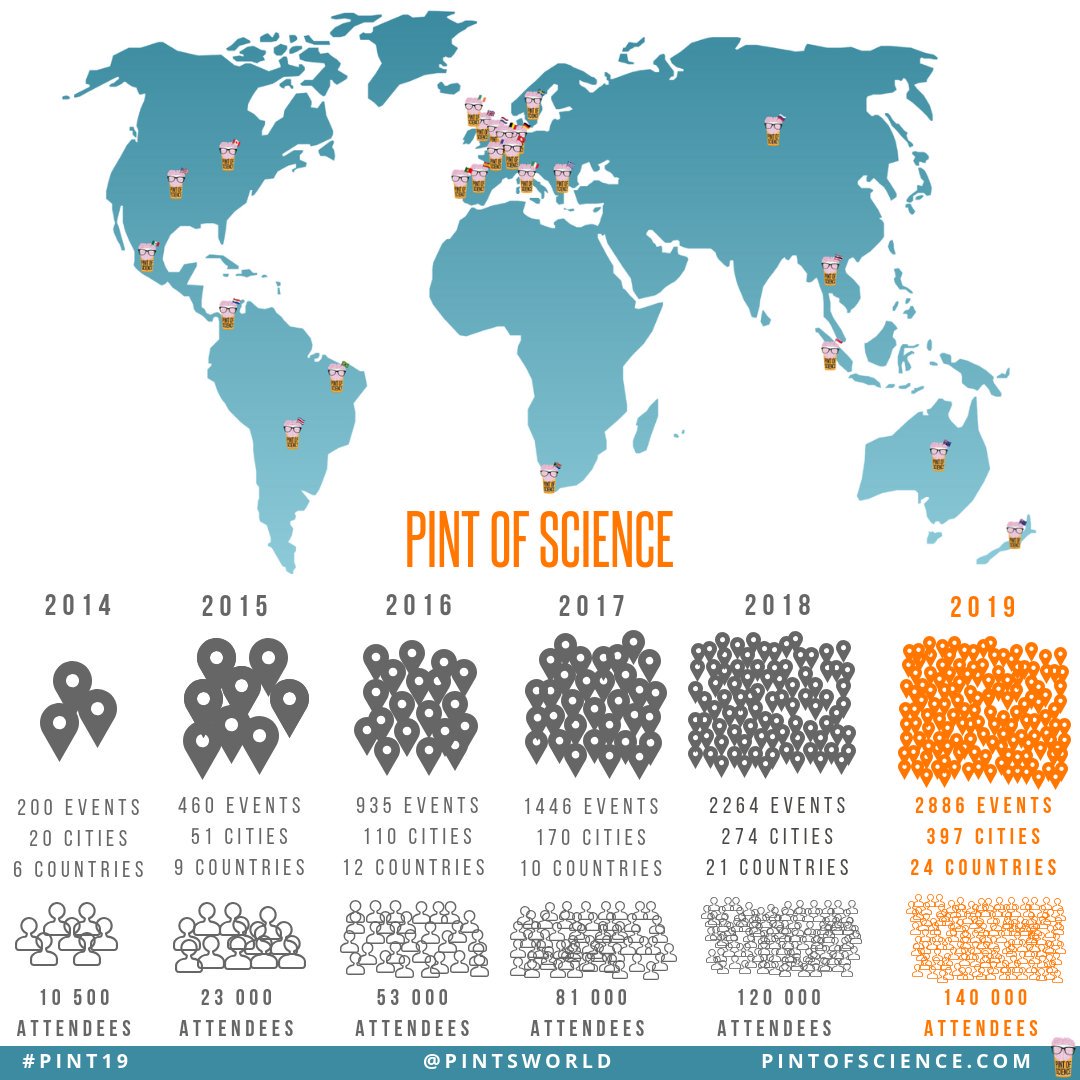
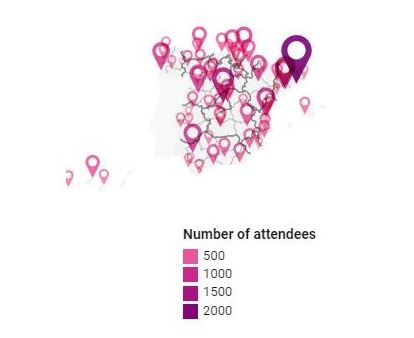
Total attendees: 23,251.
Total cities: 73
Laurent Ladépêche, one of the organizers of Pint of Science in Spain, works at the Institute of Photonic Sciences (ICFO) in Castelldefells, but he can often be found in the Barcelona Biomedical Research Park (PRBB). His research on autoimmune encefalitis requires super-resolution microscopy, for which he sometimes collaborates and exchanges with the imaging facility of Centre for Genomic Regulation (CRG) as well as Pia Cosma’s group. When I asked if he would be available to talk about the Pint of Science festival, he was happy to oblige.
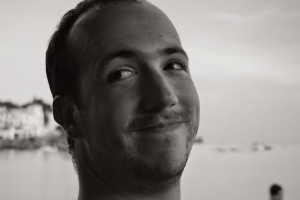
When did you first find out about Pint of Science?
I learned about it when I was still in France (in 2013) because the person who was a former PhD student in my lab is a friend of one of the co-founders of the festival; she did her post-doc in the same lab as them in the UK.
So you’re a 3rd degree connection to the founders?
Hahaha, yes, I suppose so. She mentioned that they wanted to broaden the festival, for example in France, and she asked me if I wanted to do it in Bordeaux. I was finishing my PhD and in transition to the post-doc, so at the time I was unable to participate. After I moved to Barcelona, I got in touch with the organizers of PoS to see if there was anything planned in Spain, and then I was put in touch with other organizers in Vitoria. In 2014 we began to plan, and in 2015 we had the first PoS festival in Spain in 8 different cities.
What makes a bar the perfect environment for people to have conversations about science?
I think overall, bars are a great place for having conversations; it is a very social place. In Spain people go to bars to see friends, have a drink, and talk about whatever. That was the initial idea when the festival started in the UK in 2012- try to bring the research out of the lab and bring it to the people. In a bar, people feel more open to talk to scientists and ask questions in an informal manner and enjoy the science environment.
And the alcohol helps?
It may help some of us. I think people are more open to asking questions in a bar than they are in a seminar or more formal meeting. In a pub, the physical space of the room is not like an auditorium, so the audience is much closer to the speaker, which is more informal.
Do the organizers make an effort to represent people of different backgrounds?
We try to have people from all the different fields- we have a bit more of the bio and physics sides compared to humanities and Earth sciences- probably because it is just a bigger community overall.
And in terms of country of origin, gender…
Yes, we pay attention to gender and try to be fair. This year I think it was 60/40 male to female, and generally it has been getting better each year. In Barcelona we had 80 or so speakers this year and it was near 50/50. So far we don’t pay attention to country of origin, as the idea of the festival is to have local people speak. Not necessarily people from the same country, but people who are researching and living locally.
So you don’t pay anyone- the speakers, bars, or even the organizers?
No, the organizers are all volunteers; the bars don’t get paid and the speakers don’t get paid either. The bars are happy to get extra traffic on the normally slow days (Monday, Tuesday and Wednesday) and like to support science-outreach. Sometimes the bars are kind enough to offer the speakers a free drink; in the case of the BlackLab Brewhouse, the speakers were given two craft beers and as well as a burger!
Do you have any experience or anecdote that was inspiring or made you happy to be part of the event?
As I am coordinating the festival at the national level, I often don’t get to stay in just one bar for the whole festival- but I do get to hear stories from lots of different places, since this year we started a hashtag on Twitter (#PintAnecdota), which was nice. In one event, an 8 year-old girl won one 1st place in a trivia quiz about astronomy. There were also some stories of people who traveled from city to city to see different PoS talks that they wanted to see – some even traveled all the way from the Basque country to Italy! There are lots of people who don’t have any participating bars nearby, so they travel 40-50km to the nearest event!
“Some people who don’t have any participating bars nearby travel 40-50km to the nearest Pint of Science event”
Is there anything that you would change about the event?
Every year we ask for feedback from the public, and most of the feedback is asking for more events, more speakers, more days, etc. The thing I would probably change is that these events should be more frequent. As a researcher, this kind of feedback is very encouraging and motivating, since in a research environment you don’t usually get this kind of engagement.
You mean the journals don’t write you back asking “Send us more papers, please!”?
Hahaha exactly – it’s very nice to have this direct feedback from the people that you reach. In the UK and France they do have some extra events on specific topics – for example in the UK at one event they had a direct video conference with an astronaut who was on the International Space Station (ISS). There were also some extra events on “women in science” in France. It is a good thing to have one three-day festival as a big international event each year as it gets more press and attention, but there is always room for more scientific outreach. There are other fantastic science communication initiatives like Semana de la Ciencia, La Fiesta de la Ciencia, and BCNspiracy; each have their own flavor and help to reach different groups of people.
Is there anything you’d like to add?
Yes- in the last few years in Spain we have been fortunate to be able to include some live interpreters at some events for hearing-impaired attendees. This is something that we would like to expand; the idea is to try to make Pint of Sciencie accessible to as many people as possible.
The next iteration of Pint of Science will take place from May 11th-13th (2020). If you would like to collaborate as a volunteer, a speaker, or a sponsor, please contact the organizers of PoS in Spain.
Also, you can follow the PoS team on Twitter, Instagram, Facebook, and be sure to remind your friends and family about upcoming events!
